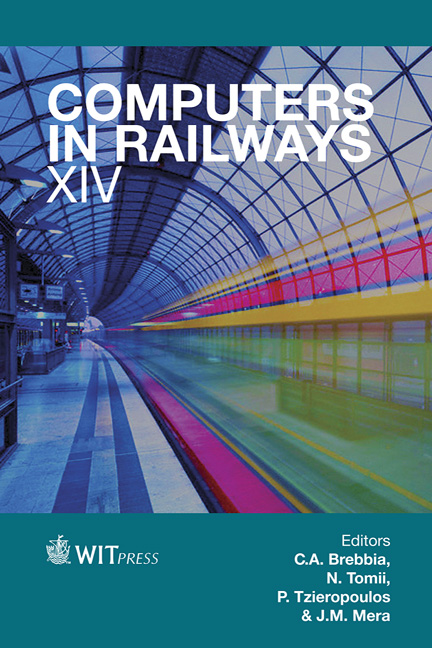Supporting Tools For Automated Timetable Planning
Price
Free (open access)
Transaction
Volume
135
Pages
12
Page Range
565 - 576
Published
2014
Size
935 kb
Paper DOI
10.2495/CR140461
Copyright
WIT Press
Author(s)
N. Bešinović, E. Quaglietta & R. M. P. Goverde
Abstract
To satisfy the growing demand in railway transportation, infrastructure managers have the necessity to design more effective timetables. To this aim it is necessary to rely on automatic timetabling support tools that can provide feasible timetables with improved performance. In this paper we propose a hierarchical framework for timetable design that includes a microscopic, mesoscopic and macroscopic model of the network. These three models interact with each other in a closed-loop in order to generate an optimal timetable that is feasible at the level of track detection sections. An iterative adjustment of train running and minimum headway times is performed in the framework which stops when a feasible timetable is generated. Different from the other approaches in literature, this framework always guarantees timetable feasibility. Additional timetable performance is also realized in terms of stability, robustness, and energy efficiency. The application to an area of the Dutch railway network shows the ability of the framework in checking the feasibility of a timetable and evaluating its stability by determining the corresponding capacity occupation. In this sense practitioners can use this framework either for effective timetabling and postevaluation of existing timetables. Keywords: timetable, feasibility, robustness, stability, capacity analysis.
Keywords
timetable, feasibility, robustness, stability, capacity analysis.





